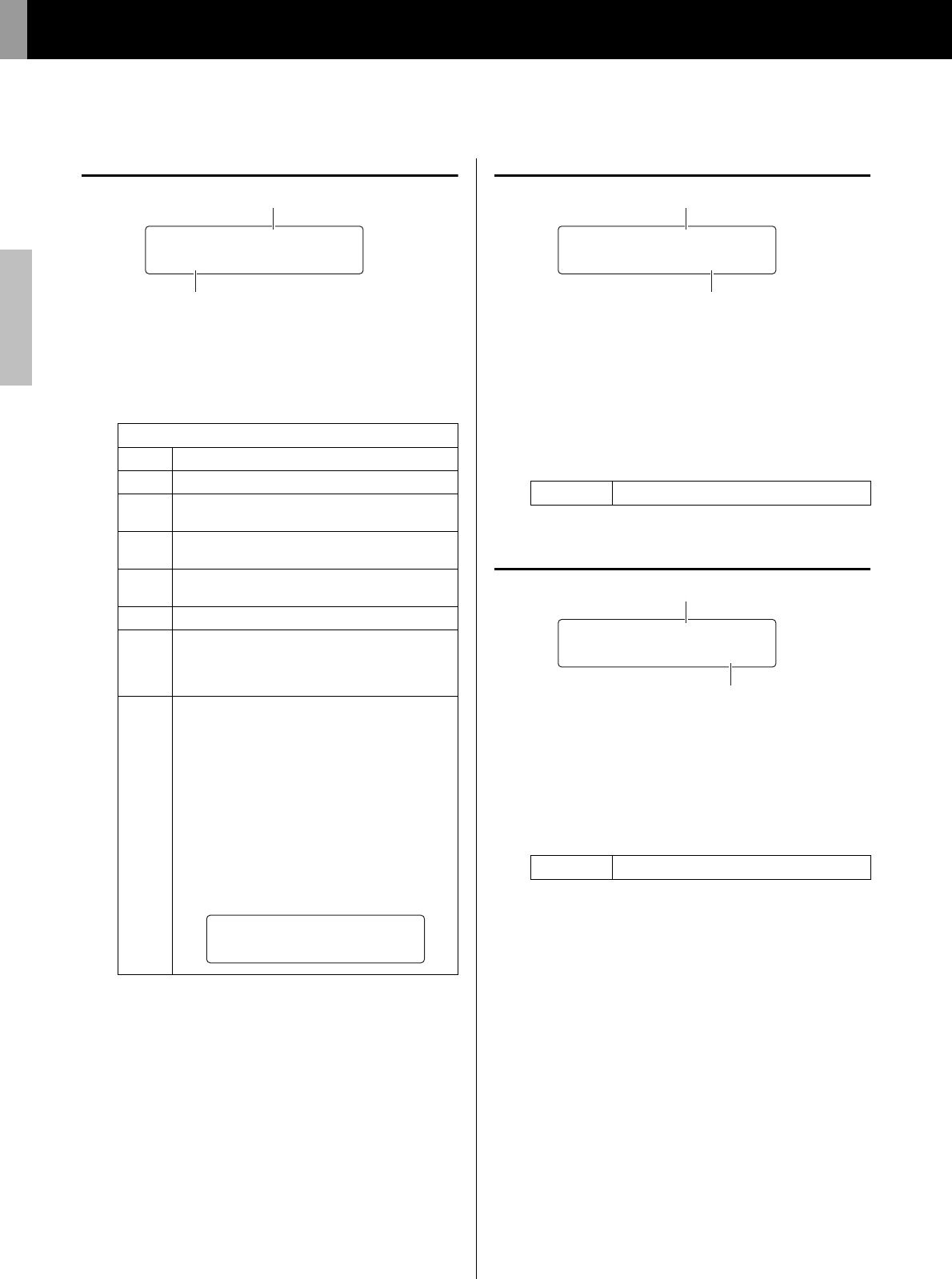
Advanced Techniques
Setting Parameters using Menu Mode
68
DTX502 Owner’s Manual
TRG3 Pad Type
q Trigger input
See q Trigger input from the description of the TRG2 page.
w Pad Type
Use this parameter to specify a type for the selected pad.
TRG4
Gain
q Trigger input
See q Trigger input from the description of the TRG2 page.
w Gain
Use this parameter to set the level of gain (or amplification)
applied to trigger input signals from the selected pad. The
higher the gain setting, the louder the sounds produced by
light drumming.
TRG5
Minimum Level
q Trigger input
See q Trigger input from the description of the TRG2 page.
w MinLevel
Use this parameter to set the minimum level of trigger signal
that must be received at the selected pad in order for a sound
to be produced.
Settings
– – OFF
KK KP125W/125, KP65, or KU100
SN
XP120/100, XP80, XP70, TP120SD/100,
TP70S/70, or TP65S/65
TM
XP120/100, XP80, XP70, TP120SD/100,
TP70S/70, or TP65S/65
CY
PCY155, PCY150S, PCY135, PCY130SC,
PCY130S/130, PCY100, PCY90, or PCY65S/65
HH RHH135, RHH130, PCY100, PCY90, or TP65S/65
DT
DT10/20SN (for snare drums), DT10/20tomH (for
high toms), DT10/20tomL (for low toms), DT10/
20kick (for kick drums), or misc1 to misc4 (for non-
Yamaha pads)
2P
For dual piezo pads
*: Only selectable when the input source q is
Tom1, Tom2, or Kick.
*: Balance settings can be made for the two piezos
(H49 to H1, 0, or R1 to R49). If, for example, a
dual piezo pad was connected to the [wTOM1/
!0] jack, Tom 1 would be the head (H) and Pad
10 would be the rim (R). If the head sounds
when the rim is struck, move the balance further
to the R side to ensure that the rim sounds
instead. Similarly, if the rim sounds when the
head is struck, move the balance further to the H
side.
>tRG3 Snare 00%
”SN:XP80 ‚
w
q
>tRG3 tom1 0%
”2P:Balance=R 6‚
Settings
1 to 127
Settings
0 to 99 (%)
>tRG4 Snare 00%
” Gain= 1 ‚
w
q
>tRG5 Snare 00%
” MinLe
V
el= 1% ‚
w
q
